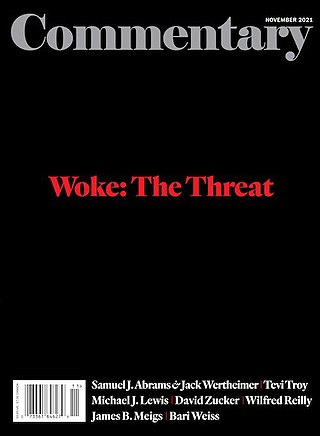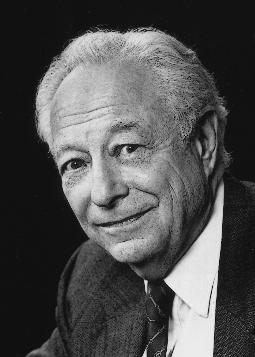
Conservative Judaism is a Jewish religious movement that regards the authority of Jewish law and tradition as emanating primarily from the assent of the people through the generations, more than from divine revelation. It therefore views Jewish law, or Halakha, as both binding and subject to historical development. The conservative rabbinate employs modern historical-critical research, rather than only traditional methods and sources, and lends great weight to its constituency, when determining its stance on matters of practice. The movement considers its approach as the authentic and most appropriate continuation of Halakhic discourse, maintaining both fealty to received forms and flexibility in their interpretation. It also eschews strict theological definitions, lacking a consensus in matters of faith and allowing great pluralism.

Judaism is an Abrahamic, monotheistic, and ethnic religion. It comprises the collective spiritual, cultural, and legal traditions of the Jewish people, having originated as an organized religion in the Middle East during the Bronze Age. Contemporary Judaism evolved from Yahwism, the cultic religious movement of ancient Israel and Judah, around the 6th/5th century BCE, and is thus considered to be one of the oldest monotheistic religions. Religious Jews regard Judaism as their means of observing the Mosaic covenant, which was established between God and the Israelites, their ancestors. Along with Samaritanism, to which it is closely related, Judaism is one of the two oldest Abrahamic religions.
The term Judeo-Christian is used to group Christianity and Judaism together, either in reference to Christianity's derivation from Judaism, Christianity's recognition of Jewish scripture to constitute the Old Testament of the Christian Bible, or values supposed to be shared by the two religions. The term Judæo Christian first appeared in the 19th century as a word for Jewish converts to Christianity. The term has received much criticism, largely from Jewish thinkers, as relying on and perpetuating inherently antisemitic notions of supersessionism, as well as glossing over fundamental differences between Jewish and Christian thought, theology, culture and practice.

Orthodox Judaism is the collective term for the traditionalist branches of contemporary Judaism. Theologically, it is chiefly defined by regarding the Torah, both Written and Oral, as revealed by God to Moses on Mount Sinai and faithfully transmitted ever since.

Reform Judaism, also known as Liberal Judaism or Progressive Judaism, is a major Jewish denomination that emphasizes the evolving nature of Judaism, the superiority of its ethical aspects to its ceremonial ones, and belief in a continuous revelation which is closely intertwined with human reason and not limited to the Theophany at Mount Sinai. A highly liberal strand of Judaism, it is characterized by little stress on ritual and personal observance, regarding Jewish law as non-binding and the individual Jew as autonomous, and by a great openness to external influences and progressive values.
The relationships between the various denominations of Judaism are complex and include a range of trends from the conciliatory and welcoming to hostile and antagonistic.

Messianic Judaism is a modernist and syncretic sect that considers itself Jewish. Many consider it a part of the Christian movement of evangelicalism.
Modern Orthodox Judaism is a movement within Orthodox Judaism that attempts to synthesize Jewish values and the observance of Jewish law with the modern world.

Commentary is a monthly American magazine on religion, Judaism, Israel and politics, as well as social and cultural issues. Founded by the American Jewish Committee in 1945 under Elliot E. Cohen, editor from 1945 to 1959, Commentary magazine developed into the leading post-World War II journal of Jewish affairs. The periodical strove to construct a new American Jewish identity while processing the events of the Holocaust, the formation of the State of Israel, and the Cold War. Norman Podhoretz edited the magazine from 1960 to 1995.
Neoconservatism is a political movement that began in the United States and the United Kingdom during the 1960s during the Vietnam War among foreign policy hawks who became disenchanted with the increasingly pacifist Democratic Party and with the growing New Left and counterculture of the 1960s. Neoconservatives typically advocate the unilateral promotion of democracy and interventionism in international affairs, grounded in a militaristic and realist philosophy of "peace through strength." They are known for espousing opposition to communism and political radicalism.

Irving William Kristol was an American journalist who was dubbed the "godfather of neoconservatism". As a founder, editor, and contributor to various magazines, he played an influential role in the intellectual and political culture of the latter half of the twentieth century. After his death, he was described by The Daily Telegraph as being "perhaps the most consequential public intellectual of the latter half of the century".
Jewish religious movements, sometimes called "denominations", include diverse groups within Judaism which have developed among Jews from ancient times. Today in the west, the most prominent divisions are between traditionalist Orthodox movements and modernist movements such as Reform Judaism originating in late 18th century Europe, Conservative originating in 19th century Europe, and other smaller ones, including the Reconstructionst and Renewal movements which emerged later in the 20th century in the United States.
The Union for Reform Judaism (URJ), formerly known as the Union of American Hebrew Congregations (UAHC) until 2003, founded in 1873 by Rabbi Isaac Mayer Wise, is the congregational arm of Reform Judaism in North America. The other two arms established by Rabbi Wise are the Hebrew Union College-Jewish Institute of Religion and the Central Conference of American Rabbis. The current president of the URJ is Rabbi Rick Jacobs.
"Who is a Jew?" is a basic question about Jewish identity and considerations of Jewish self-identification. The question pertains to ideas about Jewish personhood, which have cultural, ethnic, religious, political, genealogical, and personal dimensions. Orthodox Judaism and Conservative Judaism follow Jewish law (Halakha), deeming people to be Jewish if their mothers are Jewish or if they underwent a halakhic conversion. Reform Judaism and Reconstructionist Judaism accept both matrilineal and patrilineal descent as well as conversion. Karaite Judaism predominantly follows patrilineal descent as well as conversion.

American Jews or Jewish Americans are American citizens who are Jewish, whether by culture, ethnicity, or religion. According to a 2020 poll conducted by Pew Research, approximately two thirds of American Jews identify as Ashkenazi, 3% identify as Sephardic, and 1% identify as Mizrahi. An additional 6% identify as some combination of the three categories.
Schisms among the Jews are cultural as well as religious. They have happened as a product of historical accident, geography, and theology.
Neoconservatism and paleoconservatism are two major branches of the American conservative political movement. Representatives of each faction often argue that the other does not represent true conservatism. Disputed issues include immigration, trade, the United States Constitution, taxation, budget, business, the Federal Reserve, drug policy, foreign aid and the foreign policy of the United States.
The first openly lesbian, gay, bisexual, and transgender clergy in Judaism were ordained as rabbis and/or cantors in the second half of the 20th century.
The relationship between Judaism and politics is a historically complex subject, and has evolved over time concurrently with both changes within Jewish society and religious practice, and changes in the general society of places where Jewish people live. In particular, Jewish political thought can be split into four major eras: Biblical, Rabbinic, Medieval, and Modern.
The idea that a common Judaeo-Christian ethics or Judeo-Christian values underpins American politics, law and morals has been part of the "American civil religion" since the 1940s. In recent years, the phrase has been associated with American conservatism, but the concept—though not always the exact phrase—has frequently featured in the rhetoric of leaders across the political spectrum, including that of Franklin D. Roosevelt and Lyndon B. Johnson.








